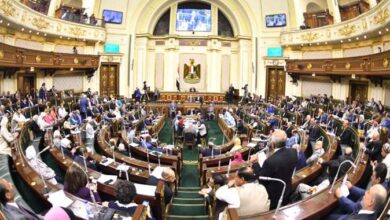
The Egyptian House of Representatives approved during a plenary session, on Monday: a draft law on procedures and dates for evacuating premises rented to juridical persons for non-residential purposes in light of the effects and economic repercussions of the emerging coronavirus.
The draft law aims to grant the juridical persons concerned with this law a period not exceeding five years from the date of this law, to reconcile their conditions
Afer which the relationship between those juridical persons and the owners or lessors will be liberalized.
It also aims to achieve a temporary balance between the two parties to the rental relationship – concerned with this law.
Firstly by setting the rental value five times the applicable legal value and annually and periodically increasing the last legal value due according to this law by 15 percent during the following four years.
The draft law also aims to organize the judicial and legal procedures related to vacating the rented premises on the day following the expiry of the maximum period specified in the law (five years) in case the tenant refrains from doing so.
The draft law came in five articles: the first article specified the scope of the draft law, which is limited to places leased to juridical persons for non-residential purposes and whose contracts were concluded in accordance with the provisions of Law No. 49 of 1977.
In the matter of renting and selling places and regulating the relationship between the landlord and tenant will fall under law No. 136 of 1981 regarding provisions relating to the lease and sale of premises and the regulation of the relationship between the lessor and the lessee, unless the two parties agree otherwise.
The second article also specified a period not exceeding five years from the date of enforcement of the law to vacate the premises rented to juridical persons for other than the purpose of housing, in accordance with the provisions of the two laws mentioned above in the previous clause.




